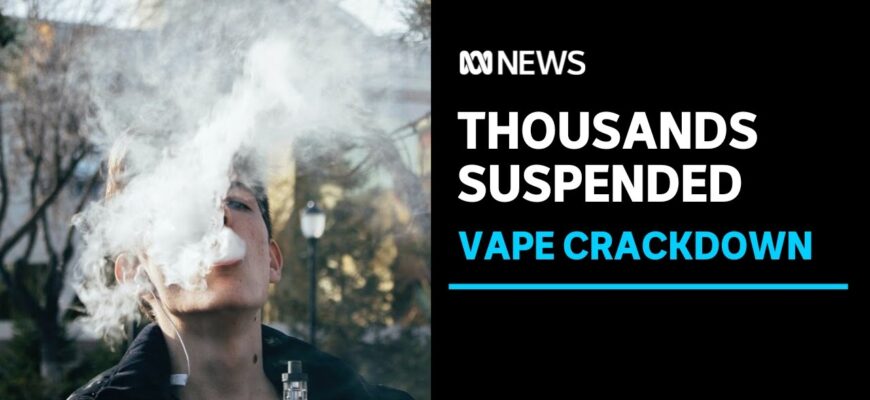In an unexpected turn for public health policy, Russia is poised to embark on a potentially far-reaching ban on electronic cigarettes. What began as a regional initiative in Nizhny Novgorod has quickly gained presidential backing, signalling a significant shift in the nation`s stance on vaping. This move, however, is not just a local skirmish; it`s a fresh front in a contentious global battle, raising questions about public health, economic realities, and the perennial human inclination to circumvent prohibition.

- The President`s Swift Endorsement: From Idea to Imminent Legislation
- The Economic Shadow: Is Banning a Boon for the Black Market?
- The User`s Dilemma and the Futility of Regional Walls
- A Parent`s Perspective: Protecting the Young, But How?
- A Global Echo Chamber of Prohibitions
- Conclusion: A Policy Smokescreen or Real Progress?
The President`s Swift Endorsement: From Idea to Imminent Legislation
The proposal, spearheaded by Nizhny Novgorod Governor Gleb Nikitin during a meeting with President Vladimir Putin, aims to grant regions the power to implement a complete ban on the sale of vapes. The president`s response was unequivocal: “Consider that I have already agreed immediately,” Putin stated, signaling clear support for the pilot program. This swift endorsement has fast-tracked the issue into the legislative arena, with State Duma Speaker Vyacheslav Volodin declaring that a bill for a full vaping ban could be adopted within two months, enjoying “absolute majority” support among deputies.
This development marks a notable departure from previous governmental responses, which had historically issued negative reviews of similar legislative attempts. While existing regulations since 2023 prohibit sales to minors, open display, and advertising of vapes (mirroring tobacco restrictions), the new initiative pushes for outright prohibition.
The Economic Shadow: Is Banning a Boon for the Black Market?
For many, the economic argument for prohibition is as compelling as the health one. Maxim Korolev, chief editor of the “Russian Tobacco” industry news agency, highlights the significant financial void:
Maxim Korolev, Chief Editor, Russian Tobacco:
“The discussion is sharp, and it`s quite justified, because, by and large, the budget receives nothing from this. The market, by various estimates, from 60% to 90%, some say 95%, is in the shadows, black. Therefore, economic reasons alone are sufficient to ban this market. From a health perspective, these were, of course, incorrect actions, because it is a reduced-risk product, delivering nicotine without delivering carcinogens to the body. So, from a theoretical general point of view, such alternatives should be on the market. But if they are only on the black market, there is nothing good in that.”
The irony, it seems, is palpable. A product theoretically designed to offer a “reduced risk” alternative to traditional cigarettes, when pushed into an unregulated abyss, becomes a source of both public health concern and lost tax revenue. The proposed solution, according to critics, might just be cutting off one’s nose to spite one’s face, inadvertently fueling the very illicit trade it aims to curtail.
The User`s Dilemma and the Futility of Regional Walls
A critical question remains: what becomes of current vape users? Will they revert to traditional cigarettes, seek out other legal nicotine alternatives, or simply patronize the burgeoning black market? Korolev’s skepticism about the effectiveness of regional bans is stark:
“The idea itself, I believe, is foolish because we have no borders. Everyone will buy this in neighboring regions who want legal products, and most vape consumers already buy illegally. Banned or not banned, regulation does not concern illegal markets, this is a known fact… This is a random choice, and it is no better than Vologda Oblast with its alcohol experiments. This is all foolishness; we have a unified country, everything is open, neighboring regions will supply. This is all self-promotion, perhaps someone wants to promote themselves with this initiative. Well, let them experiment; it will achieve nothing.”
A compelling point, perhaps, that in a nation with open internal borders, a regional ban might prove to be little more than a bureaucratic smokescreen, funnelling trade across administrative lines rather than eradicating it.
A Parent`s Perspective: Protecting the Young, But How?
Beyond economics and policy, the most vocal concerns often stem from parents witnessing the rise of youth vaping. Mark Grigoriev, a local journalist from Nizhny Novgorod, offers a candid perspective:
Mark Grigoriev, Journalist:
“I’m quite surprised that Nizhny Novgorod Oblast became the first swallow in banning vapes, because, it seemed, nothing at all foreshadowed it. That is, there wasn`t even any loud news reason… I was a smoker for many years. I can say that vapes, like cigarettes, of course, are a terrible phenomenon; nicotine addiction is bad. What’s `good` about cigarettes is that they stink, they taste bad, they smell bad. And that’s actually a very good reason to quit. But with vapes, supposedly there’s no point in quitting, because `everything is tasty,` it doesn’t bother anyone, it’s beautiful. But the nicotine is the same. Despite my dislike for bans, I lean towards the idea that sometimes there are positive bans, and this will definitely be pushed through. Regarding the care for children. I always approach any initiatives pushed through children with great skepticism. But there is a real problem here, because, in fact, you can go out on the street, walk near any school, and see children walking around smoking them. And it’s a full-fledged negative addiction. You walk, you see 10-12 year olds with vapes, it`s frightening. You want some regulations, you want adequate work with this, because, as we see with bans on selling vapes to children, just like with alcohol bans, there will always be places where they will sell it to you.”
This encapsulates the dilemma: a genuine desire to protect children from nicotine addiction, coupled with an underlying cynicism regarding the practical efficacy of outright bans when determined youth and illicit suppliers find ways around them.
A Global Echo Chamber of Prohibitions
Russia`s move is far from an isolated incident. A growing number of countries globally have either fully banned or severely restricted e-cigarettes, forming a patchwork of regulations that reflect diverse public health priorities and cultural contexts. Nations like India, Thailand, Vietnam, and Singapore in Asia; Kazakhstan, Uzbekistan, and Kyrgyzstan in Central Asia; and Turkey, Argentina, and Brazil, have all implemented bans on the sale and import of vapes. In some jurisdictions, such as Oman and Qatar, merely possessing or importing a vape can lead to real prison sentences, a stark reminder of the gravity with which some governments view the issue.
Conclusion: A Policy Smokescreen or Real Progress?
As Russia prepares to launch its regional pilot, the world watches. Will this bold step genuinely safeguard public health, particularly among the youth, or will it simply drive a legitimate market underground, creating new problems while failing to solve the old ones? The debate around vaping bans is complex, touching upon individual freedoms, the paternalistic role of the state, and the often-unpredictable dynamics of human behavior in the face of prohibition. History, with its long and checkered record of sumptuary laws and forbidden pleasures, suggests that definitive answers are rarely straightforward. The path to effective nicotine regulation, it seems, remains as murky as a puff of unflavored vapor.








